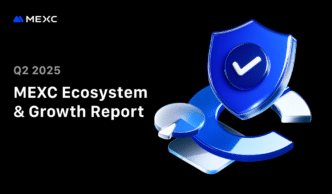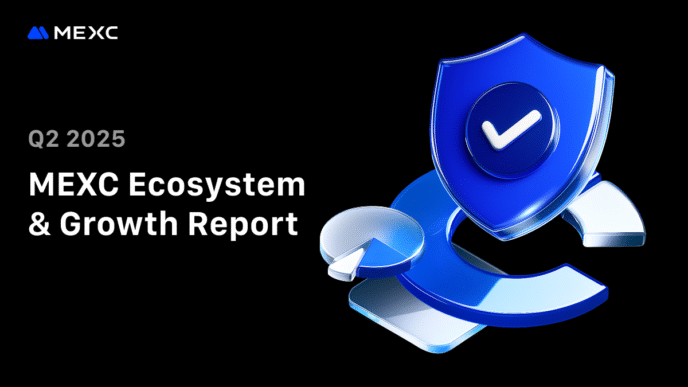Introduction
Healthcare management is at a crossroads, where the intersection of innovation and technology is reshaping how we think about and deliver care. As the world becomes increasingly interconnected, the demand for efficient, effective, and personalized healthcare solutions is higher than ever.
But what does the future hold? In this article, we will explore the current trends and innovations that are set to revolutionize healthcare management in the coming years.
Current State of Healthcare Management
Traditional Approaches and Their Limitations
Healthcare management has long relied on traditional approaches that prioritize administrative efficiency over patient-centered care delivery. While these methods have been effective to a certain extent, they often fail to address the complexities of modern healthcare needs.
The limitations of these approaches have become increasingly apparent, especially in the face of rising healthcare costs, an aging population, and the growing prevalence of chronic diseases.
The Role of Technology in Modern Healthcare
Technology has already started to bridge the gaps in traditional healthcare management. From electronic health records (EHR) to telemedicine, technological advancements are paving the way for more integrated and efficient healthcare systems.
These innovations not only streamline administrative tasks but also enhance the quality of care by making patient data more accessible and actionable.
Digital Transformation in Healthcare
The Rise of Electronic Health Records (EHR)
The adoption of Electronic Health Records (EHR) has been one of the most significant changes in healthcare management. EHRs allow for the seamless sharing of patient information across different healthcare providers, leading to better coordination of care. This digital transformation has reduced errors, improved patient outcomes, and facilitated more personalized treatment plans.
Telemedicine and Virtual Care
Telemedicine has emerged as a vital tool in healthcare, especially during the COVID-19 pandemic. It has allowed healthcare providers to reach patients in remote areas, reduce the strain on physical healthcare facilities, and provide timely care.
Virtual care, including teleconsultations and remote monitoring, is expected to continue growing, making healthcare more accessible and convenient for patients.
Artificial Intelligence in Healthcare Decision-Making
Artificial Intelligence (AI) is transforming healthcare by enabling faster and more accurate decision-making in care delivery. From diagnosing diseases to predicting patient outcomes, AI algorithms can analyze vast amounts of data in real-time, providing healthcare professionals with insights that were previously unimaginable. This not only improves the efficiency of care but also enhances its precision.
Patient-Centered Care
Personalized Medicine
The shift towards personalized medicine is one of the most exciting developments in healthcare. By analyzing a patient’s genetic makeup, lifestyle, and environment, healthcare providers can develop treatment plans tailored specifically to the individual. This approach not only increases the effectiveness of treatments but also reduces the risk of adverse reactions.
The Importance of Patient Data and Privacy
As healthcare becomes more digital, the importance of safeguarding patient data cannot be overstated. Ensuring the privacy and security of sensitive health information is crucial to maintaining patient trust.
Innovations in data encryption, blockchain technology, and secure cloud storage are playing a significant role in protecting patient data while enabling its use for better care.
The Role of Wearable Technology in Monitoring Health
Wearable technology, such as fitness trackers and smartwatches, is revolutionizing how patients monitor their health. These devices provide real-time data on various health metrics, empowering patients to take control of their health and make informed decisions. In the future, wearable technology will likely become an integral part of preventive healthcare, helping to detect potential health issues before they become serious.
Healthcare software, such as RXNT, is designed to streamline and improve various aspects of medical practice management. This includes optimizing patient care by providing tools for efficient scheduling, electronic health records management, e-prescribing, and telemedicine. Additionally, the software simplifies medical billing processes, allowing for accurate and timely claims submissions, insurance verification, and revenue cycle management.
Healthcare Analytics
Big Data in Healthcare
The use of big data in healthcare is unlocking new possibilities for improving patient outcomes. By analyzing large datasets, healthcare providers can identify trends, predict disease outbreaks, and optimize resource allocation. Big data is also being used to personalize treatment plans, making healthcare delivery more precise and effective.
Predictive Analytics for Disease Prevention
Predictive analytics is a powerful tool in disease prevention. By analyzing patient data, predictive models can identify individuals at risk of developing certain conditions and recommend preventive measures. This proactive approach to healthcare has the potential to reduce the incidence of chronic diseases and improve overall public health.
Data-Driven Decision Making in Healthcare Management
Data-driven decision-making is becoming the norm in healthcare management. By leveraging data analytics, healthcare providers can make more informed decisions about patient care, resource allocation, and operational efficiency. This approach not only improves the quality of care but also reduces costs, making healthcare more sustainable.
Innovations in Treatment and Diagnosis
The Impact of 3D Printing in Healthcare
3D printing is revolutionizing the field of healthcare by enabling the production of customized medical devices, implants, and even tissues. This technology allows for more precise treatments, faster recovery times, and reduced costs. In the future, 3D printing could even be used to create organs for transplantation, addressing the shortage of donor organs.
Gene Therapy and Personalized Treatment Plans
Gene therapy is another groundbreaking innovation that is set to change the landscape of healthcare. By targeting specific genes responsible for certain conditions, gene therapy offers the potential to cure diseases at their source. This approach, combined with personalized treatment plans, is paving the way for more effective and long-lasting treatments.
Robotics in Surgery and Patient Care
Robotic surgery is becoming increasingly common in healthcare, offering greater precision and less invasive procedures. Robots are also being used in patient care, particularly in rehabilitation and physical therapy. As robotics technology continues to advance, it will play an even larger role in healthcare, improving outcomes and automating recovery times.
The Role of AI and Machine Learning
AI in Medical Imaging and Diagnostics
AI is making significant strides in medical imaging and diagnostics. Machine learning algorithms can analyze medical images with remarkable accuracy, often surpassing human capabilities. This technology is being used to detect conditions such as cancer, heart disease, and neurological disorders at earlier stages, leading to better treatment outcomes.
Machine Learning for Predictive Healthcare Models
Machine learning is also being used to develop predictive models for healthcare. By analyzing patient data, these models can predict the likelihood of certain health events, such as hospital readmissions or disease progression. This allows healthcare providers to take preventive measures and improve patient care.
AI-Powered Drug Discovery and Development
AI in healthcare is accelerating the drug discovery and development process by analyzing vast amounts of data to identify potential drug candidates. This technology is helping to bring new treatments to market faster and at a lower cost, ultimately improving patient outcomes.
Challenges in Healthcare Management
Regulatory and Ethical Challenges
As healthcare continues to evolve, regulatory and ethical challenges in healthcare administration will need to be addressed. Ensuring that new technologies are safe, effective, and accessible to all patients is crucial. Additionally, ethical considerations, such as patient consent and data privacy, must be carefully managed.
Integrating New Technologies into Existing Systems
Integrating new technologies into existing healthcare systems can be challenging. Healthcare providers must ensure that these technologies are compatible with their current workflow and that staff are adequately trained to use them. Overcoming these challenges will be key to realizing the full potential of healthcare innovation.
Addressing the Digital Divide in Healthcare
The digital divide remains a significant barrier to healthcare access and efficient workflow. Ensuring that all patients, regardless of their location or socioeconomic status, have access to digital healthcare services is essential. Efforts to bridge this gap, such as expanding broadband access and providing digital literacy training, will be critical in the future of healthcare.
Trends Shaping the Future of Healthcare
The Shift Toward Value-Based Care
The healthcare industry is shifting from a volume-based to a value-based care delivery model. This approach focuses on patient outcomes rather than the number of services provided, incentivizing healthcare providers to deliver higher quality care. Value-based care is expected to improve patient satisfaction, reduce costs, and enhance overall healthcare quality.
The Growth of Health Tech Startups
Health tech startups are playing a pivotal role in driving innovation in healthcare. These companies are developing cutting-edge solutions to some of the industry’s most pressing challenges, from telemedicine platforms to AI-powered diagnostics. As the healthcare landscape continues to evolve, these startups will be at the forefront of change.
The Role of Blockchain in Securing Health Data
Blockchain technology has the potential to revolutionize how health data is stored and shared. By providing a secure and transparent way to manage patient data, blockchain can enhance data privacy and reduce the risk of breaches in healthcare administration. This technology is expected to become increasingly important as healthcare becomes more digital.
The Future of Healthcare Workforce
The Evolution of Roles in Healthcare
The roles of healthcare administrators are evolving as technology becomes more integrated into healthcare. New roles, such as healthcare data analysts and AI specialists, are emerging, while traditional roles in healthcare administration are being redefined. This evolution will require healthcare professionals to continuously update their skills and adapt to new technologies.
Training and Education for Future Healthcare Professionals
Training and education will be crucial in preparing the healthcare workforce for the future of healthcare administration. Healthcare professionals will need to be equipped with the skills to work with new technologies and to understand the ethical and regulatory implications of these innovations. This will require changes to medical education and ongoing professional development.
The Impact of Automation on Healthcare Jobs
Automation is set to have a significant impact on healthcare jobs. While some roles may be replaced by automation, new roles will also be created. The challenge will be to ensure that the workforce is prepared for these changes and that the transition is managed in a way that benefits both healthcare providers and patients.
Global Innovations in Healthcare Management
Case Studies of Innovative Healthcare Systems
Several countries are leading the way in healthcare innovation. For example, Estonia has implemented a fully digital healthcare system, while Singapore has developed a comprehensive telemedicine platform. These case studies provide valuable insights into how healthcare systems can be transformed through innovation.
Lessons from International Healthcare Models
Looking at international healthcare models can provide valuable lessons for improving healthcare management. Countries such as the Netherlands, with its focus on value-based care, and Japan, with its emphasis on preventive healthcare, offer examples of how different approaches can lead to better outcomes.
Cross-Border Collaborations in Healthcare Innovation
Cross-border collaborations are becoming increasingly important in healthcare innovation. By sharing knowledge, resources, and technology, countries can work together to address global health challenges. These collaborations are expected to play a key role in the future of healthcare.
Sustainability in Healthcare
Green Hospitals and Sustainable Practices
Sustainability is becoming a priority in healthcare, with hospitals and healthcare providers looking for ways to reduce their environmental impact. Green hospitals, which focus on energy efficiency, waste reduction, and sustainable practices, are leading the way in the future of healthcare administration.
Reducing the Environmental Impact of Healthcare
Healthcare has a significant environmental impact, from the energy used in hospitals to the waste generated by medical procedures, which healthcare organizations must address. Efforts to reduce this impact, such as recycling programs and the use of renewable energy, are becoming increasingly important.
The Role of Public Policy in Promoting Sustainable Healthcare
Public policy will play a crucial role in promoting sustainable healthcare. Governments can encourage sustainable practices through regulations, incentives, and funding for research and development. As the importance of sustainability in healthcare grows, public policy will need to adapt to support these efforts.
Patient Engagement and Empowerment
The Role of Mobile Apps in Patient Engagement
Mobile apps are playing a crucial role in engaging patients in their healthcare. From appointment scheduling to medication reminders, these apps make it easier for patients to manage their health. In the future, mobile apps will likely become even more integrated into healthcare, offering more personalized and interactive experiences.
Empowering Patients Through Health Literacy
Health literacy is key to empowering patients to take control of their health. By providing patients with the information and tools they need to understand their health, healthcare providers can help them make informed decisions. Improving health literacy will be an important focus in the future of healthcare.
The Future of Patient Advocacy
Patient advocacy is evolving as patients become more informed and engaged in their healthcare. In the future, we can expect to see more patients taking an active role in their care, advocating for their needs, and participating in healthcare decision-making. This shift will require healthcare providers to be more responsive to patient concerns and to work collaboratively with patients to achieve the best outcomes.
Conclusion
The future of healthcare management is bright, with innovations and trends that promise to revolutionize the industry. From digital transformation to personalized medicine, the possibilities are endless. However, challenges such as regulatory hurdles, ethical considerations, and the digital divide must be addressed to fully realize the potential of these advancements. As we move forward, it will be crucial to balance innovation with accessibility, ensuring that all patients benefit from the future of healthcare.












